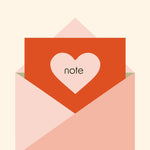Reading Is Power
If you’re reading this, you are privileged. Why? Because you have the incredible ability to read. Everyone who can read and write grew up with a person or group of people in their life — whether it was their parents, teachers, or someone else entirely — who cared enough about them to teach them this vital skill. Reading isn’t something people usually think about in terms of privilege, especially in America where a vast majority of the adult population can read. Here, no matter where you’re from or the kind of life you’ve led, chances are you can read enough to live and act independently.
One thing that has always haunted me is my mom’s inability to read. To this day, when she’s upset, she says, “Just imagine what I could do if I could read.” Those words weighed heavily on me as a child, teenager, and now, as an adult. Because she can’t read, there’s so much she can’t do without the assistance of someone else. From catching the bus to reading prescriptions, someone has to help her. Imagine living a life where you have to rely on someone else to tell you what to do. Imagine being dependent on someone else’s knowledge.
There’s a reason people say “knowledge is power.” Reading allows people to gain that knowledge. It affords people choices they wouldn’t otherwise have. There’s nothing you can’t learn from the internet, which contains the world’s knowledge base in one place . . . unless you can’t access it because you can’t read. It’s a cycle of inequity that will continue as long as there’s an illiterate population.
In Africa, almost 40 percent of adults are illiterate. Two-thirds are women. In Senegal (where I am from), 50 percent of adults can’t read. That’s why when we first launched Expedition Subsahara, we wanted to create a literacy school for young adults. But as the mission evolved, we realized that every well-paying job requires literacy plus additional education. If Senegalese women are to walk side-by-side with those in power, they need a variety of skills. With that, our goal of building a STEAM (Science, Technology, Engineering, Arts, Math) school was born.
I believe that who you become as an adult is a direct result of the fountain you drink out of in youth. It’s dependent upon where you are from, how you are raised, and whether you had someone who invested a foundation of education in you. The fact that half of the people in my country can’t read continues to weigh heavily on my soul, and I can’t be at peace until I’ve created a place where I will never again have to say “Imagine what I could do if I could read or write.”
When the Coronavirus pandemic began, Expedition Subsahara froze the education fund to support charities in Subsaharan Africa helping with Coronavirus relief. At the beginning of this week, we are happy to announce that we have reinstated the education fund to support the building of a STEAM school in Senegal. Let's do the work, tribe!


















